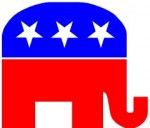Being Right: Liberal Statism and Soft Tyranny

Government curtailment of liberty is of great concern in the U.S.; however, only blatant restrictions in the name of national security (Patriot Act) rouse media attention. Unfortunately, there’s a more ominous movement afoot that few are cognizant of. It’s gone by many names: progressivism, liberalism, statism and is the watered-down, shovel-faced, sister movement of socialism that should be chained down in the basement like sloth from the Goonies.
Over the last century, Statists have silently been expanding the federal government’s powers, scope and jurisdiction, enacting legal constraints on citizens’ liberties which it was ironically designed to protect all in the pursuit of “social justice and the greater good.” This gradual concentration of power manifests itself in many forms, the most brazen being the alphabet soup of regulatory agencies and judicial activism that control citizens without their consent.
After being bent over by Britain’s tyrannical tax policies, the Framers endeavored to accomplish one simple task: create a government so limited in power it could never degenerate into tyranny. Consequently, the Constitution ensures only what are known as Negative Liberties, “freedom from government,” or liberties the government must refrain from curtailing (speech, religion, assembly).
Positive Liberties are tangible benefits that some argue the government should provide the people: “citizens have the right to education, work, equal economic resources, pensions, healthcare…” The liberals are crusading to establish positive liberties in America, even though the Constitution does not vest the government with such responsibility or authority. Conservatives want citizens to pursue these ends, however disagree that the government should provide them. While positive liberties sound ideal, I pulled that quote from the USSR Communist Constitution of 1936 (Articles 118-124), and we all know that ended.
The socialist experiment in America gained momentum in the 1930’s when fascism and socialism took hold in Europe. Convinced that capitalism could not compete with the coordinated economies across the pond during the Great Depression, Comrade Roosevelt took a page from the manifesto and initiated the largest wave of New Deal entitlement programs, regulatory agencies and government coordination of the economy to date. The Supreme Court declared many of these programs unconstitutional, as they expanded federal authority beyond Constitutional delineations.
Disregarding the law, FDR tried to pack the Supreme Court with fringe left judges that would support it (Court Packing Scheme). This may seem benign, as FDR was pursuing noble ends, but what if some Republican packed the courts to ban gay marriage… for the “greater good”?
FDR is a forbearer of the statist movement in America and what Tea Baggers (insert your preferred innuendo) affectionately refer to as a “soft tyranny,” where the government expands control over the citizen for the abstract notion of the “greater good.” Today, environmental policy is pursued by fringe groups through similar judicial activism, creating law through the courts rather than congress, marginalizing the citizen’s participation in the political process.
Through demagoguery and populist rage, the Obama administration has brought the statists’ agenda into the mainstream, expanding government dominion into new realms of the private sphere. The bailouts established federal control over the operations of private businesses. The healthcare bill constrains citizens’ liberties, mandating every citizen to purchase medical insurance under penalty of a fine ($2,200/yr). While these curtailments may be for the public good, how does the citizen neutralize the government from wielding such influence on more ambiguous issues when it no longer adheres to the tenets of the constitution?
When the government takes on peripheral responsibilities, it intrudes into the citizens’ privacy, broadens its regulatory power, pads taxes to finance the entitlement and does a half-assed job providing the service, as it isn’t constrained by market forces. In this paradigm, governments determine who receives/deserves what resources, how much, and are subsequently free to inject their own moral assumptions into policy. Economist Friedrich Hayek warned of this in The Road to Serfdom where increasing government entitlements destroy the wealth of the citizen via burgeoning taxes, expanding dependency on the government for distributing vital resources and eventually making citizens slaves to the government for survival.
Our generation will watch the character of this country change; ideals of limited government and self preservation are being replaced with government dependence and a culture of entitlements, where citizens will rely on the government for resources at the cost of living their lives as they choose.
At the end of the day, regardless of party or creed, every American must ask: what is this greater good and who determines it? What’s the government’s role, and to what extent should it pursue social justice at the cost of my liberty and autonomy? Personally, I’d rather be water boarded by Chris Matthews than further distort the liberties we all hold so dear.
To conclude, Thomas Jefferson said, “I predict future happiness for Americans if they can prevent the government from wasting the labors of the people under the pretense of taking care of them.”








